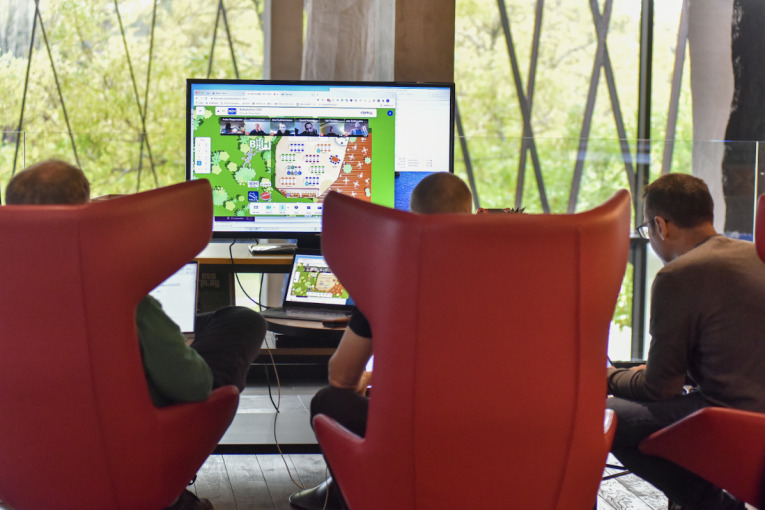
![]()

By: Rodrigo Villegas
With the end of the federal COVID-19 Public Health Emergency, one might expect to see workers returning to the office full-time in an attempt to return to pre-pandemic work life. However, a shift towards hybrid work seems more likely.
The Flex Report, a report on hybrid and remote work with data from over 4,000 companies, demonstrates a decrease in the number of companies with a fully in-office presence, decreasing from 49 percent in the first quarter to 42 percent in the second quarter of 2023. Meanwhile, the number of companies adopting hybrid work increased to 30 percent from 20 percent in the first quarter.
Companies are adopting what Robert Sadow, the CEO and co-founder of Scoop Technologies who publishes The Flex Report, calls “structured hybrid,” where specific days require an in-office presence. The prevailing structure currently requires in-office presence during two or three days of the week, with Tuesday, Wednesday, and Thursday as the most popular days.
Some companies have even created new office designs specifically for hybrid work, such as NBBJ, an architecture and design firm. They created a “living lab” — an office for the company to examine what arrangement and structure best aligns with hybrid work — in New York City, with the goal of encouraging employees to want to go to the office for hybrid work, despite dreadful commutes to work.
Steve McConnell — NBBJ’s managing partner and board chair — told TIME, “We’re in the early stages of a deep recognition that the workplace needs to be different.”
Other companies are not content with employees continuing to work from home since they pay rent for their offices. Apple, Tesla, and Twitter require employees in the office full-time, and Disney requires employees in the office four days a week.
When I was searching for a summer internship earlier this year, I focused on applying to remote internships. The idea of remote work enticed me — especially for out-of-state internships — because of the benefits it provides: Working from the comfort of my home, no long commutes, a flexible schedule, sleeping in and waking up ten minutes before the start of my shift… Ultimately, I acquired a hybrid internship and this is for the better.
While remote work sounds very tempting, it can be a double-edged sword. Yes, it is extremely beneficial, but it can induce a lack of productivity. You’re at home; you have everything at your disposal to persuade you not to work after all. Any video games you own, the TV, your bed, even that book on your desk that you’ve been meaning to read…or is that just me?
And I know I am not alone. Some of my friends have expressed similar sentiments: The home can be too distracting.
So while I desired a remote internship, in retrospect, I am glad I did not obtain one. I know myself well enough to know that working remotely can be a detriment to my productivity. I need an environment where I can immerse myself in my work and surround myself with others who wish to do the same.
That being said, I think we should move on from a fully in-office style of work. Forcing employees to commute to work all five days of the workweek and sit in a dull cubicle wears out a person. Sooner or later, they’ll start counting down the hours until the end of their shift — waiting for the hour hand to hit 5 p.m. so they can dash out of the office and head home.
Instead, structured hybrid work seems like a perfect blend between remote work and fully in-office work.
As we head into a post-pandemic era, more companies should adopt hybrid work. It reduces the number of times an employee has to come into the office so their job is not as mentally taxing, but still provides a place for them to focus on their work on the days they do come into the office.